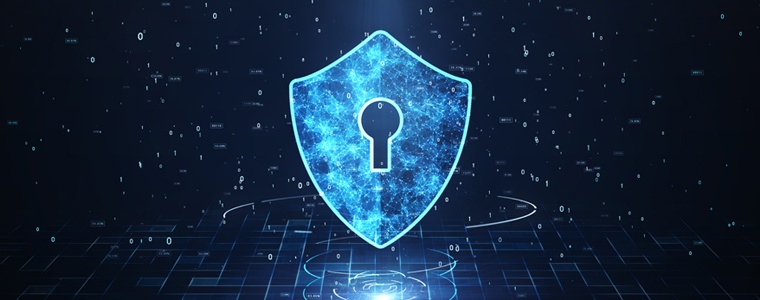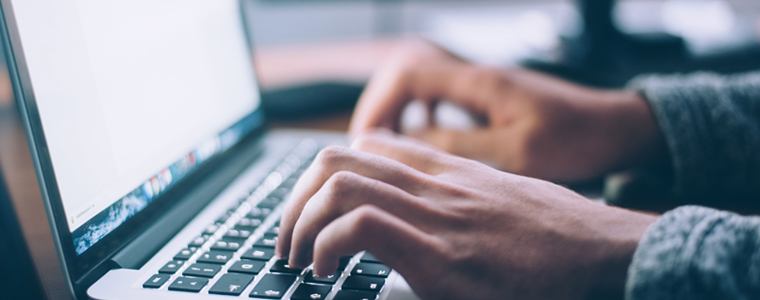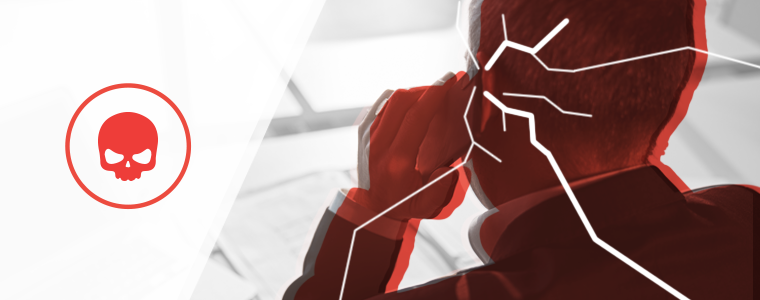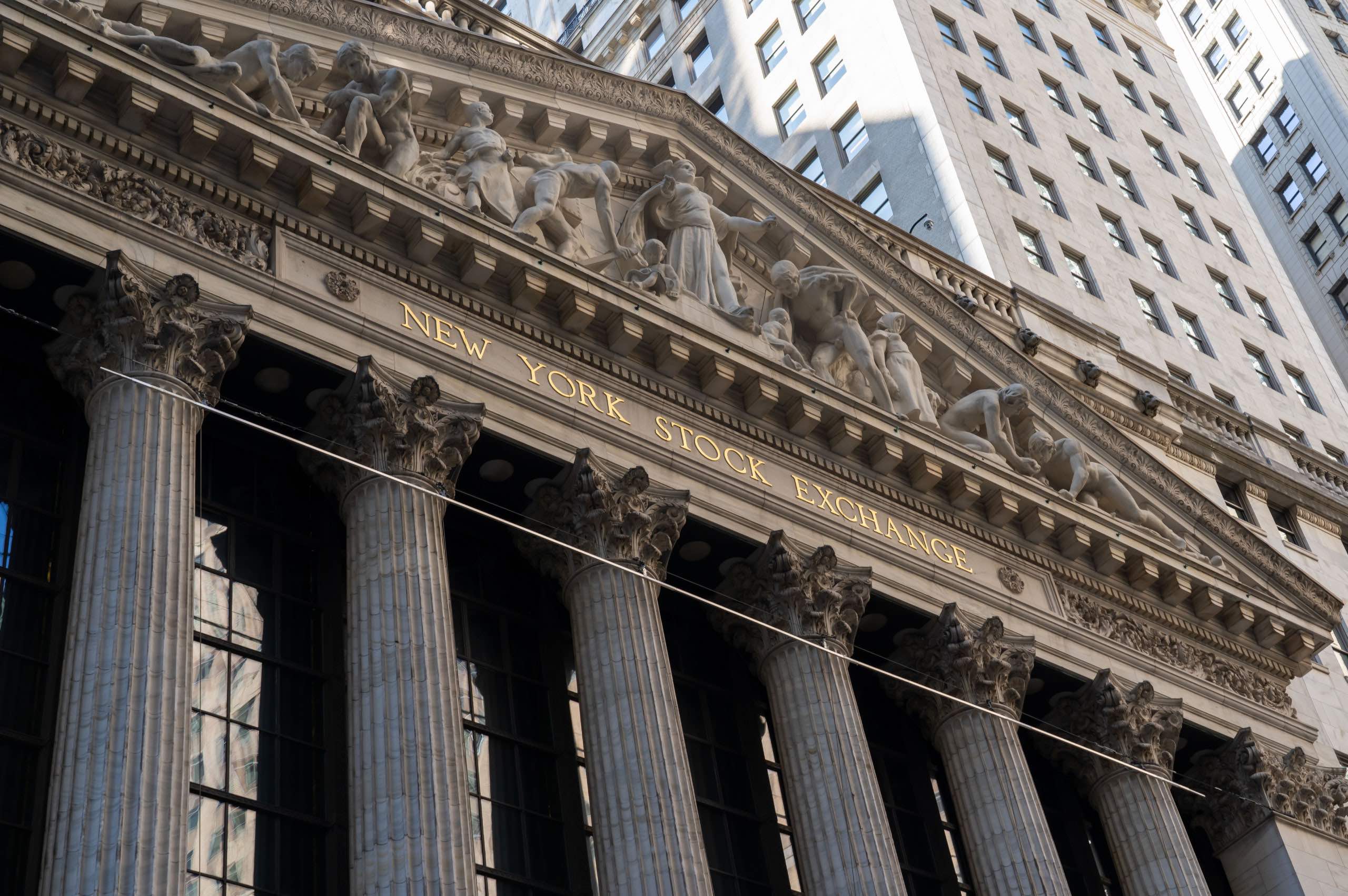Key To A Successful Cybersecurity Career At Agio
In the spirit of National Cybersecurity Awareness Month, we gathered members from Agio’s trailblazing cybersecurity team to understand what drives their success. Here, they discuss industry challenges and rewards, their unique backgrounds, and how together they’re working to make the world more secure.
In what profession or field did you work prior to entering cybersecurity?
Carrie Bowers, Director of Extended Detection & Response: I started out as a counterintelligence agent in the U.S. Army for eight years—enlisting after 9/11. When I left the military, I moved into nursing. I worked as a home nurse aide providing dignified end-of-life care while studying to be a physician assistant. After a few years, I found my way into cybersecurity.
Eva Lorenz, Senior Cybersecurity Consultant: I worked as a researcher in genomics, studying the genetic modifier of environmental lung diseases and developing models for studying such diseases. As part of the training and work I worked with a lot with NIH-maintained databases, did 3-D modeling of proteins, and regularly submitted jobs to organizations such as CERN that had the computing power most universities could not afford back then.
Seamus O’Reilly, Associate Director of Cybersecurity Testing: I started off as a Desktop Technician building desktops and PCs. I quickly moved into networking and building large enterprise networks, and after five years as a senior network engineer delivering service to Hospital Trusts and Local Government, I took a leap of faith and moved into Government Contracting, which ultimately led to my career in cybersecurity.
Clark Rahman, Cybersecurity Consultant: My first job out of college was as an Account Manager selling IT services and equipment to businesses for an Internet Service Provider. I was also an IT specialist within the Army Reserves which provided a great foundation to build on before I transitioned to cybersecurity. This all fed into my eventual cybersecurity career and helped me understand certain industry aspects I wouldn’t have known if I had not gone down this path.
Gina Yacone, Senior Cybersecurity Consultant: For close to 14 years, I worked as a licensed private investigator for a law firm in Tampa, FL. In that role, I specialized in high-profile, complex, trial litigation. I worked on hundreds of cases, mainly in criminal defense. I had the honor of factually working up cases, proving and disproving the legal theories of the case based on facts. I successfully obtained critical evidence by interviewing witnesses, conducting exhaustive research, and analyzing documentary evidence. My goal was to leave no stone left unturned. My favorite parts of case investigations were the human elements, how fast things moved, the puzzles, and jury selection.
Shelly Harvill, Business Development Manager: I spent the first several years of my career in radiology on the patient care side as a Radiology and MRI Technologist. I also worked with organizations like GE Healthcare and Cerner Corporation in the strategy and implementation of clinical information systems.
Cathy Olieslaeger, Customer Success Manager: I worked in telecommunications at Belgacom and Orange Business Services which led to global communications at Orange and Verizon Business. Back in those days I sold Frame Relay services, then MPLS and all the integrations that came with the explosion of the internet as a business platform.
Kirk Samuels, Executive Director of Cybersecurity: Prior to working in cybersecurity, like many others I worked in information technology. My career evolved from general IT support, to network, systems, and database administration, to web and ecommerce management. Throughout my IT career, cybersecurity became more and more important as the potential impact that attackers had on systems grew.
Olivia Stone, Program Manager: I was previously in the Elevator Manufacturing Industry, working as a Manager of Project Engineering within Research and Innovation.
Learn More
How were you introduced to the cybersecurity industry?
Clark: Through the military. As an Army Reservist who was an IT specialist at the time, this new branch of the Army, “The Cyber Corps” was created when I returned from Afghanistan in 2014. I knew I wanted to get into a more technical field than what I was studying in college and what I was doing in the Army, so I applied and was accepted to become a Cyber Operator. The Army then put me through a tough pipeline of courses that began my cybersecurity career, leading to a Senior Cybersecurity Analyst role supporting Special Operations Command (SOCOM) within my civilian career.
Gina: I was introduced to a technology recruiter who told me to explore being a cybersecurity professional. He stated that there were not enough women in the industry, and he thought I could be a trailblazer. My goal is that I make him proud, and I hope to become a trailblazer to the future women in our industry.
Carrie: My interest in cybersecurity really sparked while in the military. On one deployment I worked in an intelligence fusion cell where I was exposed to different technologies and special access programs that were cyber-focused and very fascinating to me. I also found that the counterintelligence investigations I conducted were becoming more cybersecurity related.
Eva: As part of my law school curriculum, I did an internship for the University Counsel at UNC-CH and was assigned, among other projects, a policy research project for the IT Security office. Based on the presentation, I was offered a job to work on compliance and act as a go-between IT Security and University Counsel.
Kirk: Throughout my IT career, cybersecurity became more and more important as the potential impact that attackers had on systems grew. As is still the case today, many organizations wrongly believed cybersecurity is solely the responsibility of IT. While working for a large ecommerce company I took on responsibility to oversee our PCI compliance to secure our customers’ credit card data. This along with other activities to secure our web sites piqued my interest in cyber and led me to wanting to focus on it.
Seamus: While in Government Contracting, I held and maintained UK and NATO Security Clearance. I started working on larger projects, designing and securing critical infrastructure and after a combined 10 years working in this space, I moved into mainstream private cybersecurity, take roles as compliance officer, SOC Manager, Senior Research Engineer and finally a position as Security Manager of list X site.
What skills from your previous professional roles proved most valuable in cybersecurity?
Gina: Research, writing and presenting skills are part of my day-to-day responsibilities. The ability to communicate is a powerful tool to have. It’s vital to be able to speak and write clearly on cybersecurity strategy and policy to individuals of different levels of technical competencies. Additionally, for me, having a background in legal allows me to translate risk well to business leaders.
Oliva: The ability to understand and communicate technical information across different levels of technical knowledge is a skill I worked hard to hone as I transitioned from more technical roles to project management. In cybersecurity – and here at Agio specifically – clients often have multiple service offerings and comprehending how they interconnect is beneficial. Also, attention to detail and problem-solving are critical.
Carrie: Intelligence analysis, as well as technical report writing experience have proved helpful – same skills, different data sets. Leadership experience and training are also very useful. Understanding how to take care of your people, prioritize tasks and manage time are universally valuable in any role. Additionally, empathy skills honed from working in healthcare are part of that universal toolkit, along with being able to build strong teams that can work as a cohesive unit.
Eva: Conceptional thinking, the ability to research items and work independently, technical writing, and figuring out how applications work.
What new skills did you have to learn?
Seamus: Attention to detail. Being able to design and build secure and reliable systems – or break into (hack) some of the world’s most secure systems – requires time, effort and motivation. But without attention to detail and the ability to find that one small insignificant control or incorrectly configured systems is what allows me (and my team) to stay in the game.
Carrie: Besides becoming technically proficient in multiple cybersecurity tools and platforms, the biggest skill to hone was effective business communications. It’s truly a test of your knowledge when you can take complex, extremely technical information and synthesize it into actionable intelligence to any audience at any elevation.
Shelly: Moving into cybersecurity I had to learn the terminology and compliance drivers (requirements) such as the HIPAA Security Rule and how a cybersecurity program meets those requirements.
Cathy: I learned so much over the years working with Agio! I learned about the various security and compliance frameworks (NIST, PCI, HIPAA, SEC, NY DFS, GDPR, CCPA, HITRUST, etc.); how to tailor our security solutions to our clients’ unique makeup (vertical, size, complexity, internal IT and security resources, security maturity, risk tolerance, business priorities and budget); and I constantly learn new things about security operations and the ever-evolving threat landscape and security technology. The alphabet soup keeps growing and my head keeps spinning. Never a dull moment is an understatement in cybersecurity.
What’s your advice to individuals considering a career in cybersecurity?
Seamus: Do it. There is no “wax on, wax off” for who is going to be a good pen-tester or if you will like cybersecurity. But if you wake up in the morning and the first thing you think about is protecting people from malicious actors and threats, then do it. We all have one life, live it. None of us are getting out alive.
Kirk: I recommend getting exposure to all areas to figure out what most appeals to you. If you’re more technical, then pen testing, forensics, or threat hunting may be a good choice. If you’re more organizationally focused, policy and governance may be interesting areas to focus on.
Gina: Network, network, network! Go to conferences, connect with people on social media, join cybersecurity professional organizations. Not only can your network be vital to your professional success, but it also helps you stay up to date on industry trends and new technology.
Cathy: Imposter syndrome is a real thing in cybersecurity. Everybody starts with little or no knowledge or experience in cybersecurity and sometimes the climb or the “breaking into” cybersecurity seems very daunting. As you apply for a role in cybersecurity, don’t underestimate or negate your education or work experience of any kind. Skills like communication, collaboration, empathy, listening, investigative and critical thinking and self-awareness are critical. Your ability to build trust with your colleagues and customers is the most important quality you can bring to the table.

What is most rewarding about working in cybersecurity?
Seamus: Every day I make a difference, I protect people, I keep families safe, and I stop businesses from going under, by being the best I can be. I find holes that the bad guys are going to use and I help your teams patch them.
Clark: I enjoy the constant challenge of the always evolving cybersecurity field. Being able to solve problems and help others prepare to defend against something that may not even exist yet but has the potential to cause significant financial and reputation damage is a rewarding feeling. I love learning and despise becoming complacent, so cybersecurity meets my needs by continuing to feed my appetite for more.
Carrie: Helping people. I’ve always found myself drawn to fields focused on serving others and helping them with important issues. It’s a fast-paced and stressful line of work to be in, but also immensely rewarding to know you had a positive impact through the hard work and dedication you put into your job every single day.
Shelly: I take immense pride in the work our Agio Cybersecurity Government team does in educating and securing our clients’ every day, and knowing that on the other end of our work there is a customer, consumer, or patient whose life or data is more secure today because we did our job.
Agio is hiring! If you’re looking to evolve your cybersecurity career, find our more about our open positions, benefits, and culture here.
Learn More
Share post
Featured Posts
Connect with us.
Need a solution? Want to partner with us? Please complete the fields below to connect with a member of our team.




